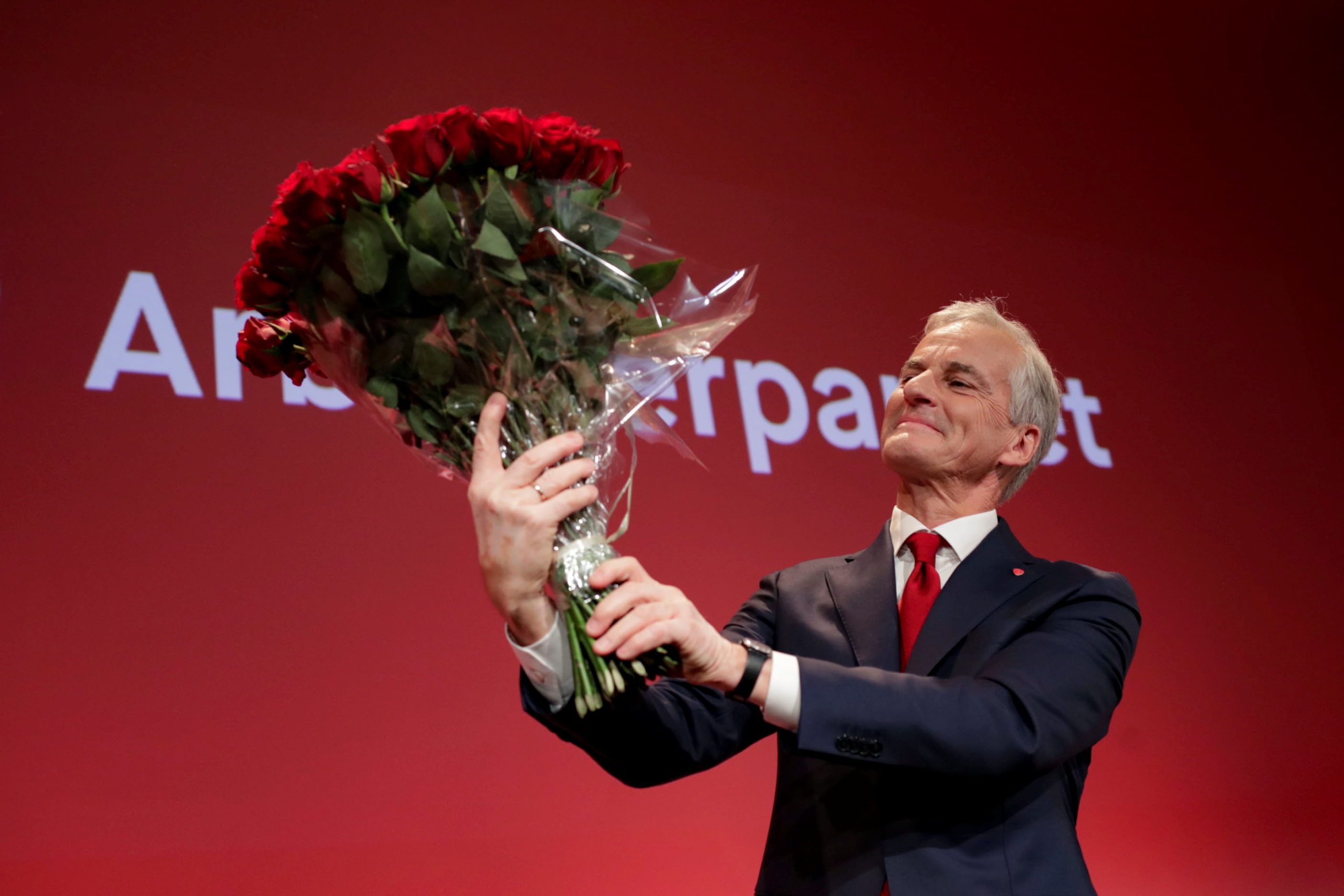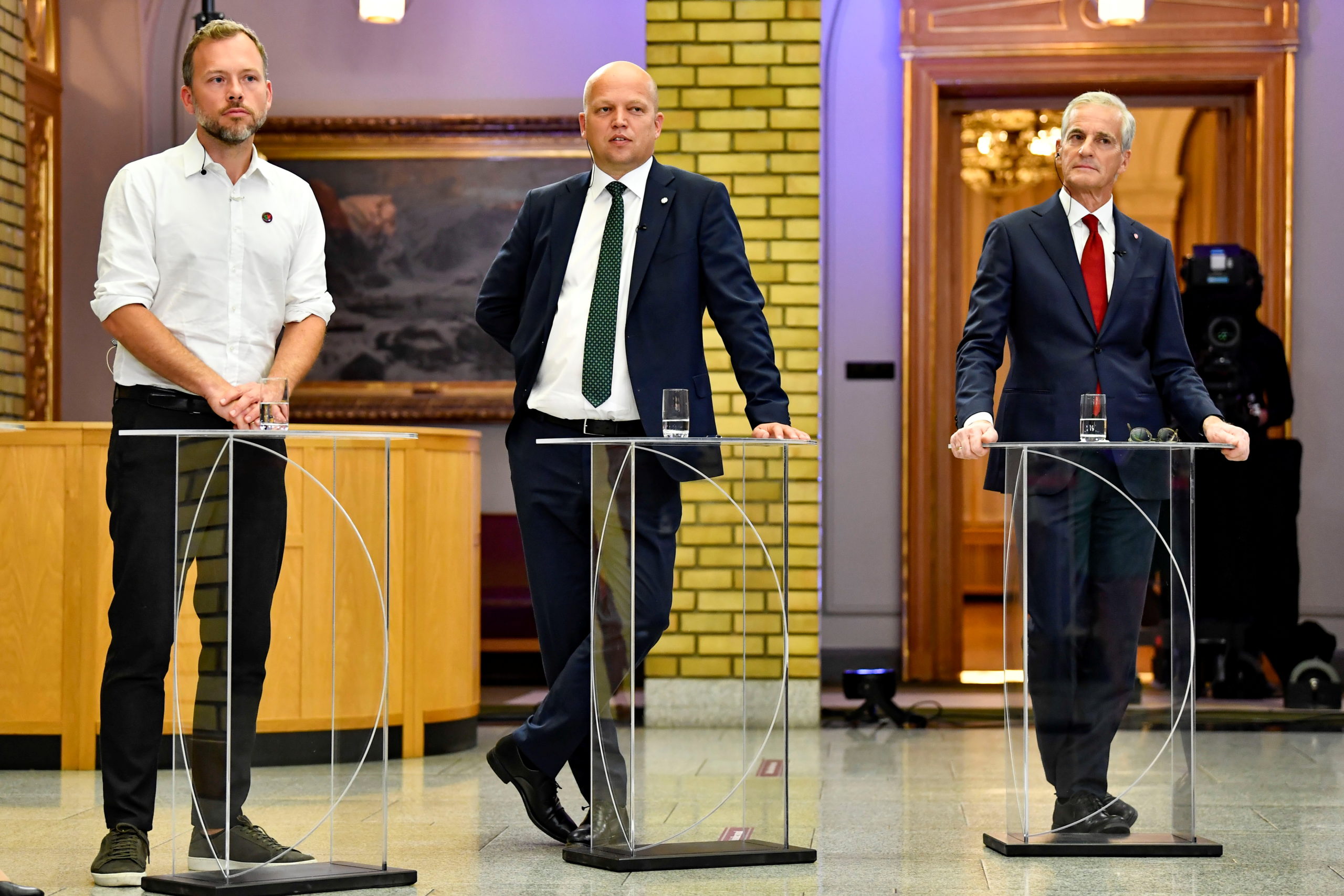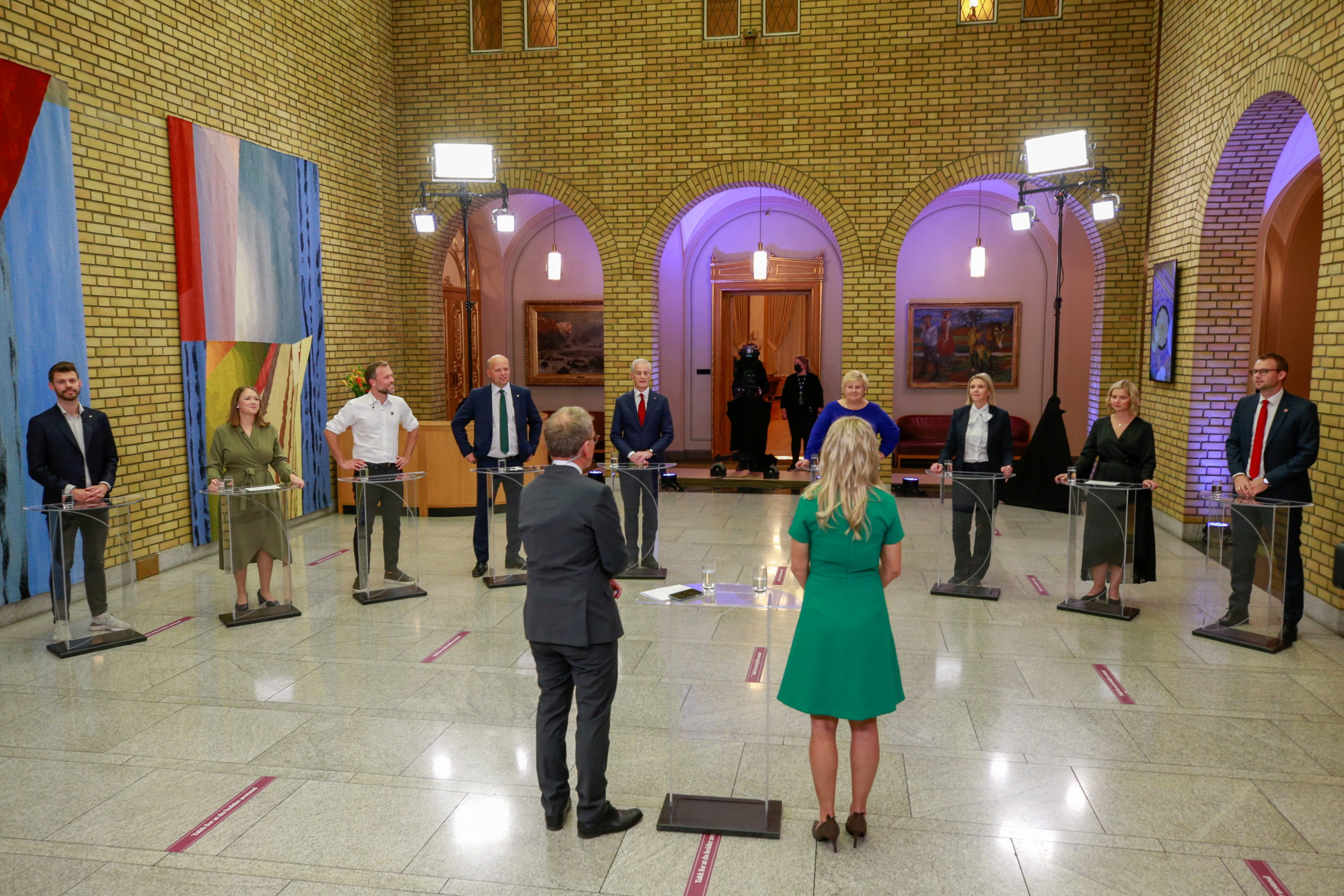After left-leaning Labour wins most votes in national election, Norway coalition talks start
Two key Arctic issues, climate change and oil development, will be at the center of policy discussions for the new governing coalition.

OSLO — Norway’s Labour Party began coalition talks with other members of the center-left bloc on Tuesday seeking to form a government after their parliamentary election victory, with the focus on climate change and oil.
Labour leader Jonas Gahr Støre must address voters’ concerns over global warming and a widening wealth gap, while ensuring any transition away from oil production — and the jobs it creates — is gradual.
Støre’s goal is to convince both the rural-based Centre Party and the mostly urban Socialist Left to join him, which would give his cabinet 89 seats, four more than what is needed for a majority in the 169-seat assembly.
“There is more that unites us than divides us,” Støre told reporters outside his home in Oslo on Tuesday after speaking with other party leaders on the phone.
He must persuade Centre and the Socialists to compromise on policies ranging from oil and private ownership to non-member Norway’s relations with the European Union.
In particular, Støre must persuade them to compromise on energy policy, including where to allow exploration while also cutting emissions.
“The likely compromise has to do with restricting exploration, and the less explored and matured areas are easier to stop exploration in,” said Baard Lahn, a researcher at Oslo-based climate think-tank CICERO.
[Drill or no drill, Norway’s offshore future is shaping up to be carbon intensive]
“Also the industry has indicated they are less interested in those areas at the moment. That’s a possible outcome, but exactly what that will look like, there are many possibilities.”
Norway produces around 4 million barrels of oil equivalent per day, accounting for more than 40 percent of export revenues.
But most major parties also believe oil will play a smaller part over time, and hope the engineering know-how of oil firms can be transferred to renewable energy, including offshore wind.
Conservative Prime Minister Erna Solberg said she would step down after eight years in power as soon as a new government is ready, with a cabinet headed by Støre potentially taking office in mid-October.
Monday’s result means Labour neither needs the Marxist Red Party nor the anti-oil Green Party to rule, thus lessening the pressure for big shifts.
“Labour will not make any dramatic changes to the oil industry,” said Teodor Sveen-Nilsen, an energy analyst at Sparebank 1 Markets.
“Most important was Labour’s decent results.”
Labour won 48 seats, down one from four years ago, while the Conservatives lost nine seats at 36 as the political panorama fragmented and smaller parties gained ground.
Trygve Slagsvold Vedum, leader of the Centre Party which saw its seats rise by nine to 28, reiterated his desire for a two-party government with Labour but did not rule out three.
The Socialist Party, which nabbed two extra seats to haul 13, pointed to oil and taxes as the big issues.
“Climate and oil, tax and wealth distribution are policies that we must sort out if we are to be part of a new government,” Socialist Party leader Audun Lysbakken said.

